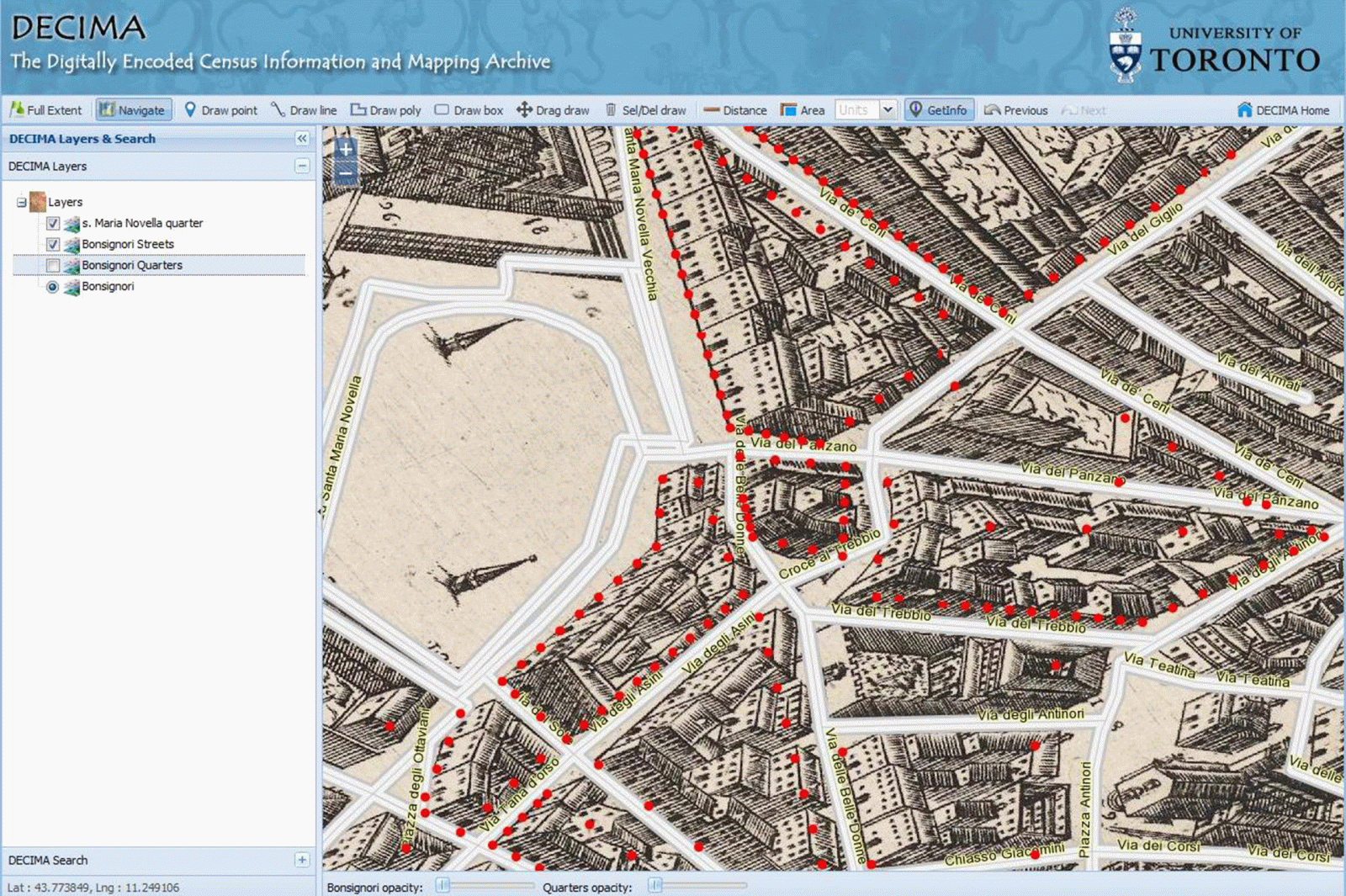Project presentation
Digital Mapping in Early Modern Florence: the DECIMA project
by Nicholas Terpstra and Jasmine Proteau
organized by the Library of the Kunsthistorisches Institut in Florenz

The DECIMA (Digitally Encoded Census Information & Mapping Archive) Project emerged as an on-line tool that surveys the social structures of mid-sixteenth century Florence, and that allows a mapping of spatial, sensory, and kinetic dimensions of the city. University of Toronto researchers have teamed up with international partners, including the Kunsthistorisches Institut in Florenz, to bring a series of distinct digital projects into one on-line archive for better comparison and cross-referencing of results. A description of this innovative international collaboration was published earlier this year in Mapping Space, Sense, and Movement in Florence: Historical GIS and the early modern city (Routledge: 2016). In this presentation, Nicholas Terpstra will review how DECIMA emerged and developed, and will look ahead to the next stage of activity and collaborations, including work with the KHI's extensive collection of historical guides to Florence. A current work-in-progress is Jasmine Proteau’s project, Guided.
Guided is a project designed using DECIMA's GIS mapping technology to understand tourism in 16th century Florence. By examining the Bonsignori Map's Luoghi Notabili and the Florentine guidebook Le Bellezze della citta di Fiorenza (1591), Guided will be presented as a way to compare and understand these, and other sources, visually.
Nicholas Terpstra is a Renaissance and Early Modern History Professor at the University of Toronto. His research lies at the intersections of politics, gender, religion, and charity, and has explored how Renaissance cities handled orphans, abandoned children, criminals, and the poor in the fifteenth and sixteenth centuries. His current research into sensory conceptions of space in Renaissance Florence was the impetus for creating DECIMA as a digital tool mapping social, sensory, and built environments.
Jasmine Proteau is currently studying for a Masters of Museum Studies at the University of Toronto School, focusing on the Curation of European heritage and cultural history. She has worked with DECIMA as a research assistant looking to develop information on public buildings, tourism and movement in 16th century Florence while also working to facilitate the development and launch of the redesigned DECIMA website. She is currently working as a summer intern at Kunsthistorisches Institut in Florenz.
Partners
In cooperation with
14 June 2016, 11:00am
Kunsthistorisches Institut in Florenz
Max-Planck-Institut
Palazzo Grifoni Budini Gattai
Via dei Servi 51
50122 Firenze
Notice
This event will be documented photographically and/or recorded on video. Please let us know if you do not agree with the Kunsthistorisches Institut in Florenz using images in which you might be recognizable for event documentation and public relation purposes (e.g. social media).



